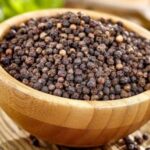Those who eat a lot of red meat and sausage have an increased risk of depression. Of course, there are many other factors that can contribute to the development of depression. However, a healthy diet low in meat and sausages is considered an important component in the holistic therapy of depression.
Meat consumption and depression
Not only do you have a higher risk of cancer and cardiovascular disease, and you also have a shorter life expectancy, if you eat a lot of red meat and sausages, you also run the risk of developing depression, as revealed by a September 2020 meta-analysis.
A study from March 2020, when researchers at Johns Hopkins University discovered that people who had to be treated in hospital for a manic episode eat meat and sausage products much more frequently than people, showed that meat consumption can have an unfavorable effect on the psyche who were mentally healthy.
Don’t feel like reading the whole article, but would like to know what you can do about depression from a naturopathic point of view.
Nitrates in meat and sausage products promote psychological problems
It may be the nitrates, used as a preservative in many meat products, that can contribute to mania. Mania is a mental disorder in the course of which so-called manic episodes occur, which become noticeable through an exaggerated feeling of elation and can lead to ill-considered actions.
Meat and sausages increase the risk of depression
In the meta-analysis mentioned at the beginning, 17 studies with a total of over 240,000 participants were reviewed and evaluated, which revealed a significant connection between the consumption of red meat and processed meat products and the risk of depression – a result that, according to the scientists involved, can be used in future therapy concepts should take into account.
Meat and processed meat products are high in fat and – especially processed meat products – would have a negative impact on the HPA axis (see below) and promote chronic inflammatory processes. Both damage the cardiovascular system and – if there are vascular disorders in the brain – can also increase the risk of depression in this way.
Of course, one has to take into account – according to the researchers – that people who eat a healthy diet with little meat usually do not smoke and do sports.
Healthy eating improves depression
Depression is much more common than you might think. 264 million people worldwide are said to be affected – and one in six will experience a phase of depression at some point in their lives. At worst, depression can lead to death. Among 15 to 29-year-olds, suicide is the second leading cause of death after accidents.
However, the psyche and thus also depression can be influenced, e.g. B. by nutrition. Of course, not all depression is diet-related, but diet—when bad enough—can play a role in the development of depression or prevent it from healing.
A meta-analysis of 11 studies on the subject of “nutrition and depression” was published in 2012. It was found that the less fruit, vegetables, nuts, legumes, olive oil, and omega-3 fatty acids eaten, the higher the risk of depression.
But there are already concrete studies in which depressed people have been prescribed a healthy diet (which was always low in meat and sausages) to see whether the depression also improved because it could have been that the unhealthy diet is simply a consequence of depression, especially since it is not easy to take care of a healthy diet when depressed.
Nutritional therapy even had a huge impact on major depression, a 2017 study found. A third of the subjects were even considered cured after three months. Two years later, another study was published in which the depressed study participants were significantly better after just three weeks thanks to a change in diet.
How diet can affect depression
The diet helps so well with depression because high-quality nutrients are involved in the formation of neurotransmitters in the brain and also have an anti-inflammatory effect (chronic inflammatory processes occur in depression).
A good supply of nutrients is also needed to regulate the above-mentioned hypothalamus-pituitary-adrenal cortex axis (HPA axis for short: hypothalamus-pituitary-adrenocortical), which controls the release of the stress hormone cortisol. When stress occurs, cortisol is released, and once the stressful situation is over, the HPA axis regulates cortisol down again. In the case of chronic stress, the latter no longer happens at some point, and – in addition to many disorders in the organism – depression can also occur.
Neurogenesis is also influenced by the nutrient supply. Neurogenesis means the formation of new nerves. It is possible that antidepressants relieve the symptoms of depression in some people because they promote neurogenesis. It is known from animal studies that neurogenesis declines in depression.
In addition, it is known that there is a connection between the state of the gut flora, gut health, and the brain – and since a healthy diet also heals the gut, a reason for the effect of nutritional therapies on depression may also lie hidden here.



